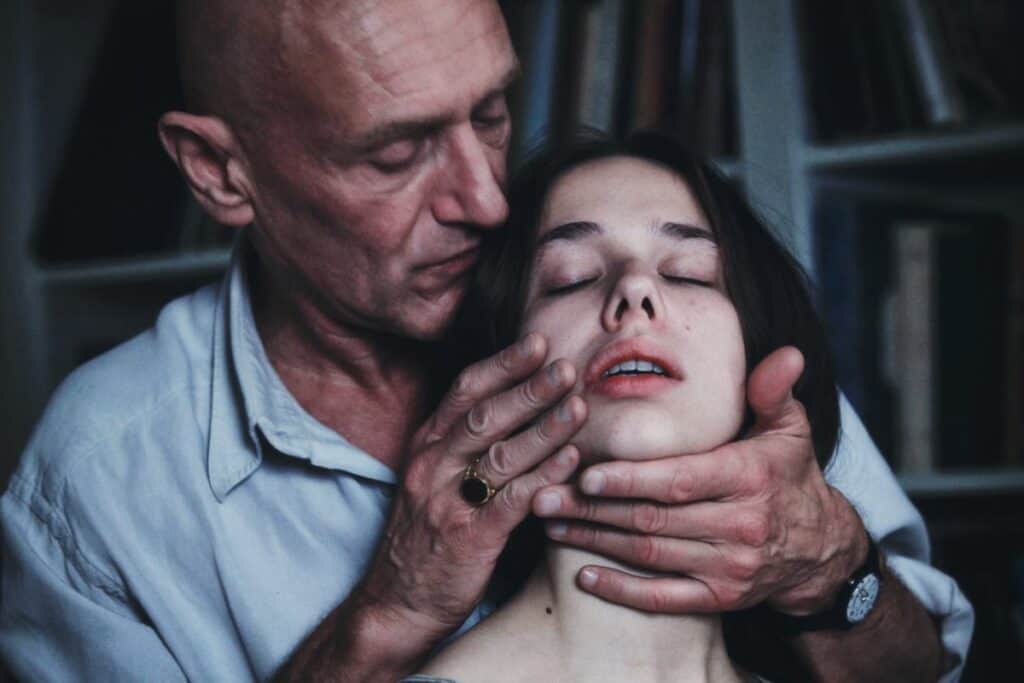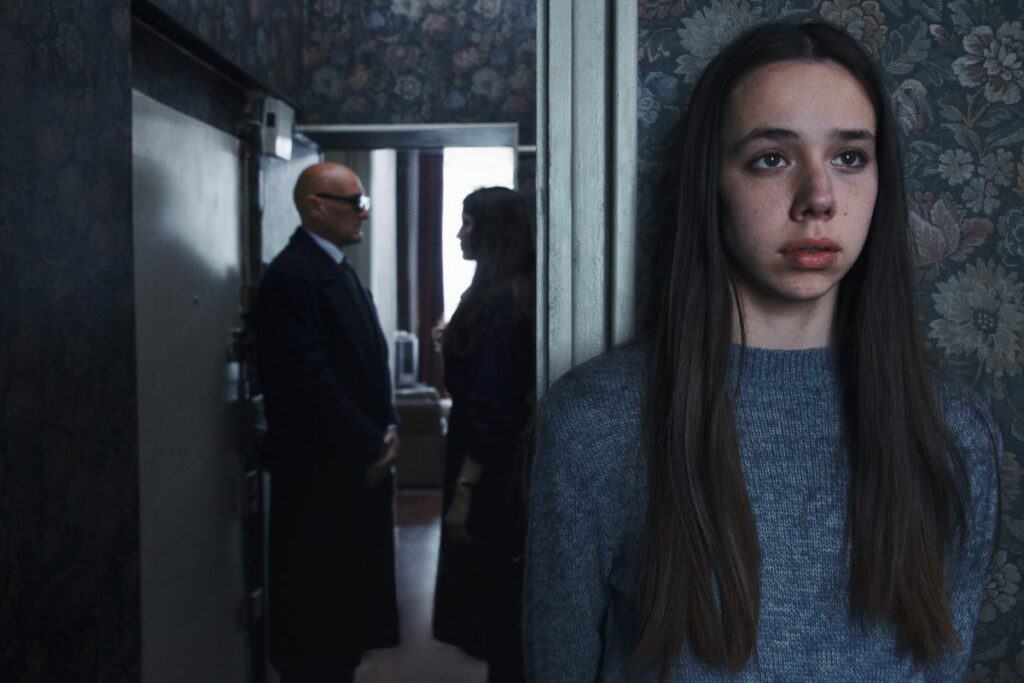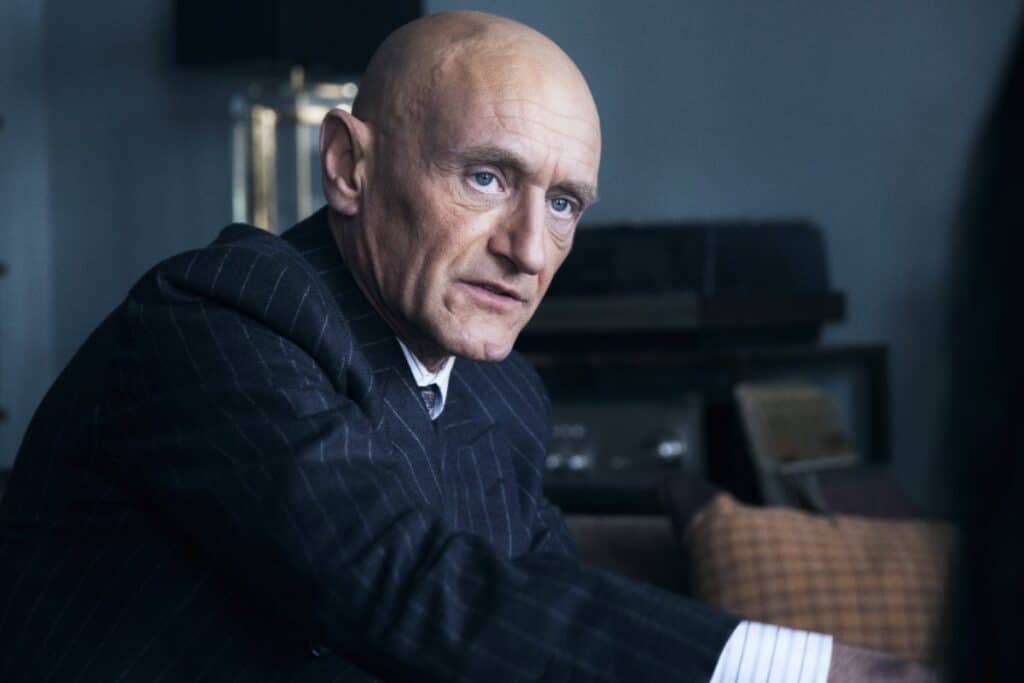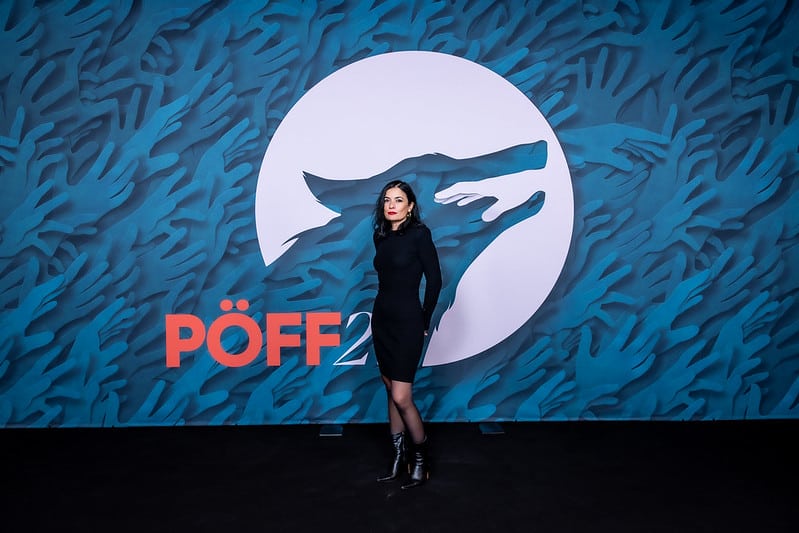I saw Consent (Le Consentement) at its international premiere during the Black Nights Film Festival in November. It is an adaptation of the eponymous book by Vanessa Springora, which details how she was used by famous author Gabriel Matzneff when she was underage. The book caused quite a stir in several ways. After the screening, I was able to do an interview with Vanessa Filho, the director, about the film (reviewed here).
What was the origin of this project, and how did you find Vanessa Springora’s book?
Vanessa Filho: I was working on another project when my producer suddenly called me and said there was an emergency and we had to talk. The book Le Consentement had just been released, and the producers wanted me to read it. I normally don’t make book adaptations, but I was instantly moved by the book and felt I had to react somehow. I called the producer and said I had images in my head and wanted to make this movie. He told me that I would have to call Vanessa Springer and that it was far from sure that she would agree. We met each other, and after a meeting, she said OK to the project.
How did you proceed with writing the scenario, and how much is left of the book?
It is very faithful to the book, and it was very important for me not to betray its spirit. Gabriel Matzneff’s books had transformed her into a character of fiction.
Books? He wrote more than one book about her?
Yes, he wrote a few books where she appeared, mostly in his published diaries. He wrote terrible things about her in those books, so I wanted to be closer to the truth.
So he was really big in France at the time?
It’s strange because he was not selling so many books in France, but he was really famous since he was very transgressive. It was like a character he had created, and he was invited to lots of TV shows.
Like the Apostrophes clip that we see in the film.
Yes, he was mostly known for things like that and his diaries.

So, how do you approach them making the film? For instance, when it comes to the sex scenes. You must have thought about how to handle those with a young actress like Kim Higelin.
When I first met Kim, we had a conversation where I asked her to tell me honestly how she felt about those intimate scenes. She told me those scenes are not the most difficult for her, but rather the psychological violence, which is all in the script. That is more violent for me, too. So before the shooting, I asked Kim Jean-Paul [Rouve] and my DOP to get together, and I explained to them in detail shot by shot. I always said to Kim that whenever you want to stop, we’ll stop, and I will find a way to rewrite the scene.
Did that ever happen?
No, she was confident. Also, the shooting was delayed twice, which gave us extra time to get to know each other, and there was trust between us.
I’m still trying to understand the thing with Gabriel Matzneff. He was going to Asia for decades to have sex with underage boys and girls and bragging about it in his diaries, and no one reacted to that. He even became a hero in the literary world?
No, because during the eighties in France, transgressions were seen as something positive. I’ve read those books where he describes what he did. It’s unbelievable, but everything was justified in the name of transgression. That’s why I put this part of the TV show Apostrophes in the movie: I wanted to remind people that it existed and that it was not such a long time ago.
It is so weird that he is treated like a dignified person talking about that stuff, but one woman stands up to him.
She’s Canadian. Her name is Denise Bombardier. She opposed him, but she was treated horribly in France after that. To include that sequence was a kind of homage to her.
Is she still alive?
No, she died a few months ago. I wish we could have shown the film to her.

Did Matzneff himself comment on the book or the film?
He didn’t say anything about the film. Regarding Vanessa Springora’s book, he admitted that those things happened but that all the acts were consensual even though she was underage. After the release of Vanessa’s book, he wrote a work called VanessaVirus. He had to publish it himself since no publisher wanted anything to do with it after Le Consentement.
He wrote it to trash her?
Yes, and to picture himself as an unjustified victim.
Going back to the film itself, how did you choose the actors? There are some interesting choices there.
Kim came to the casting quite early, and it was quickly clear that she had understood the complexity of the character. Jean-Paul Rouve is a very famous actor, not least in comedies, so it was really brave of him to play this part that goes against his image.
I was surprised by Laetitia Casta as the mother. She is great, but that part is also a bit of a leap for her.
She was great to work with. She has done so many different things now, also in the theatre.
Is the mother a big part of the book, as well?
That was something I told Vanessa Springora. I really wanted to develop the character of the mother because when the book was released, many journalists were very critical of the mother. She was in a difficult situation. This is something Matzneff describes in his diaries. That children with single mothers were easier to pray upon.
Did he write that openly?
Yes, he wrote a kind of essay which is called Les moins de seize (Under Sixteen), and it’s a kind of pedophile guide., When you read that, you understand that the mothers were collateral victims.
And then, towards the end of the film, you have Élodie Bouchez as the grown-up Vanessa.
I felt a bit embarrassed to ask such a famous actress to take such a small part without any lines, but she felt the topic was important and accepted.

The interview with Vanessa Filho goes technical
How about the cinematic aspects? Do you have any particular cinematic references?
I was thirteen when I decided I wanted to become a director, and I fell in love with Kieslowski’s trilogy. I was thirteen when I saw Bleu (1993). Afterwards, I stayed in my room listening to Preisner’s music. I’m not sure he has influenced my style since it is more about emotions. I also like Bergman and Jane Campion a lot.
How did you approach the film stylistically? Guillaume Schiffman was your DP for the second time after Angel Face.
We have become quite close. My intention was really to follow her point of view, the way she saw things, and how that changed throughout the story. Every shot was designed to accomplish that.
She is more or less in every scene.
Yes. I wanted her vulnerability to come through, and the placement of the camera was always designed for that purpose. I would label the style subjective emotional realism. I wanted to create feelings more than to show things, to stay in emotional temporality. I also wanted that feeling to change throughout the film as the images become more raw.
So, how did you approach this technically?
We used some old optics from Cooke.
Which camera did you use?
An Alexa, but I wanted a particular texture, so that’s why I used those Cooke lenses, but only for the first part. Then, the images became less warm, and the colours changed as well.
How was the reception in France? The film opened there in October.
The audience grew gradually, and then something marvellous happened. Young people really took the film to their hearts. Lots of teenagers went to see the film, and it became a phenomenon on TikTok, where young people were filming themselves before and after watching the film.
I’ve seen that. They were happy going in but shocked afterwards. How were the reviews?
They were mostly quite positive. Some of them wanted to create controversy, and then there are, of course, those who still are friends with Matzneff, but we knew that would happen.
